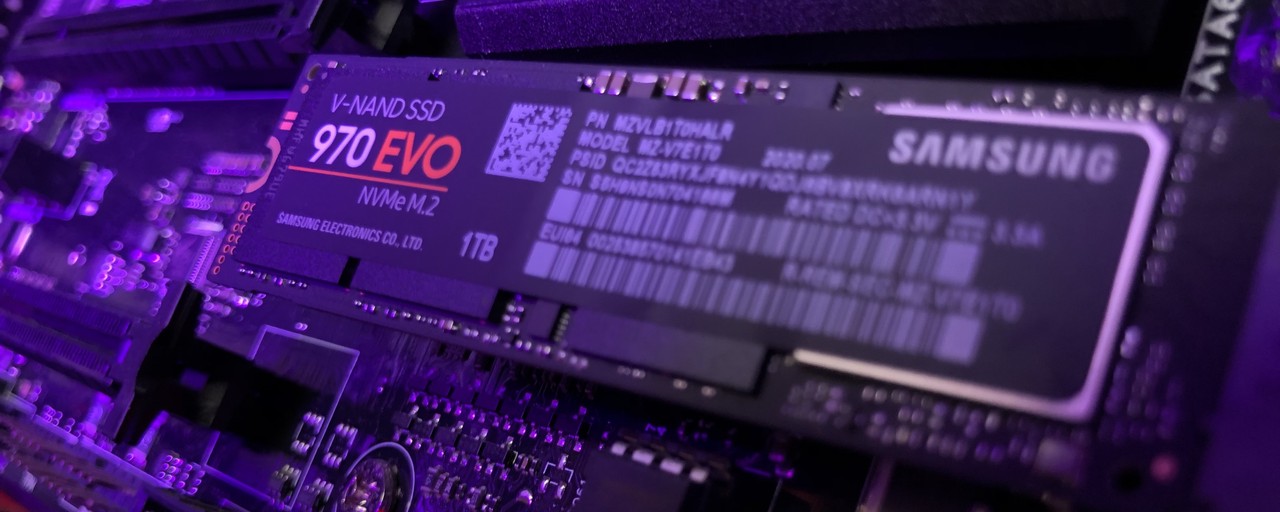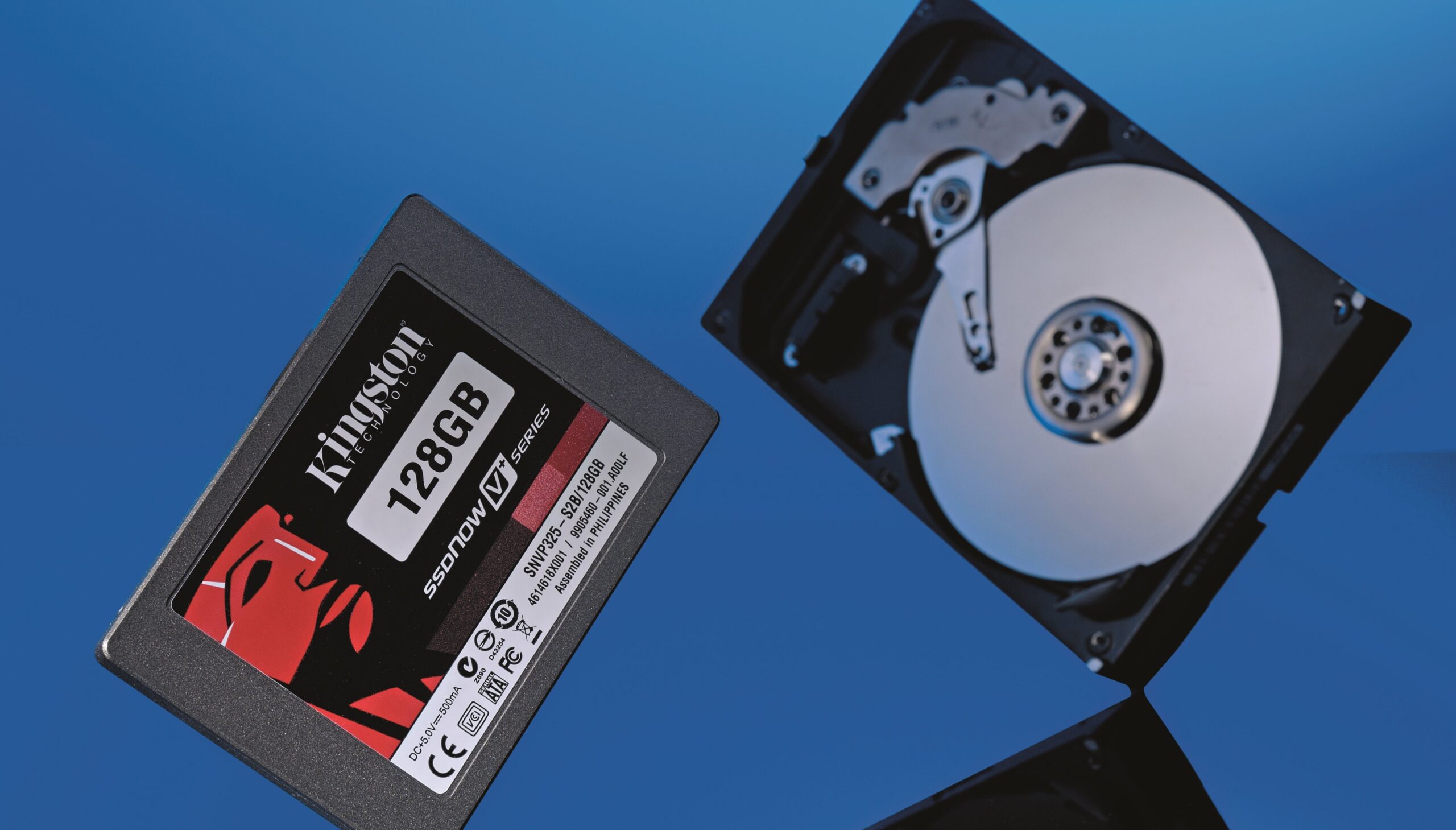
When building a gaming PC, choosing a suitable storage device is one of the most important things. There are two types of storage devices you can choose from SSD or HDD. The two devices are very different from each other. Aside from their size, they work differently when storing your data.
HDD vs. SSD

HDD (Hard Disk Drive) uses moving parts to retrieve and save data. This device works with an actuator arm moving over circular tracks on a spinning platter. Because of this process, HDDs have a slower random read-and-write processing time than SSDs. When it comes to gaming, delays can happen when loading up assets or contents of the game.
On the other hand, SSD (Solid State Drive) is engineered using integrated circuits with no moving parts. Most of these devices use NAND flash memory which allows them to deliver faster read/write speeds than HDDs. They also have lower latency, allowing games and apps to load faster.
This means SSDs generally perform better than HDDs, especially for gaming PCs. They excel in delivering key performance metrics from its read/write speeds to overall reliability. Most current gaming PCs in the market use SSDs as their primary storage device. It also has become a standard for the next generation of gaming consoles.
The Benefits of SSD
Below are reasons why it is better to install SSDs over HDDs for your gaming PC build:
1 – Durability and Reliability
Overheating is one of the causes of hard drive failure. Due to HDD’s continuous motion with its moving parts can generate more heat than necessary and cause breakdown over time.
Since SSDs don’t use any moving parts, they can maintain lower temperatures while delivering high performance. SSD is also more durable as they are better engineered to handle drops, shakes, and shocks. This offers more security for your data than HDD.
2 – SSD Process Faster than HDD.
SSD allows your software and programs to load faster than HDDs. They offer shorter boot times for your gaming PC, allowing immediate data transfer, and delivering higher bandwidth. Faster speeds also mean that SSDs can handle data at fast speeds, which is necessary for today’s video games. This is true, especially when running video games that access large amounts of data. SSDs also offer more stability and security for your stored data.
Here are the differences between the two SSD types:
- NVMe SSD: utilizes the use of its PCle bus instead of the SATA bus. This allows it to unlock enormous bandwidth potential. For example, PCle 4.0 has up to 32 lanes. This enables it to transfer data up to 64,000 MB.
- SATA SSD: allows its users to achieve 50-120 MB/s in write performance. It uses and optimizes the SATA bus at up to 550 MB/s. But despite its bus limitation, you can get better performance 10 to 15 times better than HDD.
3 – Energy Efficient
As stated earlier, SSD has no moving parts. This means that it takes less power for this storage device to operate. On the other hand, HDD runs with a magnetic spinning disk that requires more power. This is the reason why SSD is more energy efficient. This is why SSD is highly marketable for a gaming PC build.
4 – Less Weight
SSDs have a smaller size and weigh less than large HDDs with magnetic heads and metallic disks. They are the perfect storage device for more compact devices such as laptops, tablets, and other small electronic devices. When it comes to gaming PC build, SSD allows more space inside your PC case. This helps with the airflow and reduces the heat inside other running components.
And SSDs have no moving parts, they are quieter than HDDs when running. Such noise and vibrations from the HDD can be very distracting.
5 – Practical Size
Since their release in the market, HDDs have always been limited by their large sizes. This is one of the best advantages SSD has over HDD. SSD comes in various sizes, and some of the smallest only being 2.5” inches in form factor.
6 – Smoother Gameplay
Many video games in the market need to perform small read-and-write operations while you are playing. This can result in hundreds of megabytes, especially during data transfers.
While upgrading to an SSD will not improve your FPS, it can boost the time it takes for your PC to load new areas and textures in the game.
HDD needs time to read and write the data, creating latency and hitches. On the other hand, SSD has greater bandwidth and reduced latency, which helps them quickly access data.
7 – More Longevity
The lifespan of an HDD is around 25% shorter than an SSD because of its moving parts. As HDD requires moving parts which generates more heat, this affects life expectancy. This makes the SSD a better choice as your gaming PC’s storage device than HDD.
8 – Faster Boot Up Speed
HDD requires a warm-up period before they can begin to properly process data because they need moving parts to work. In fact, the average system boot up for an SSD is from 10 to 13 seconds. Compared to an HDD with a boot-up time of 30 to 40 seconds, which is three times slower.